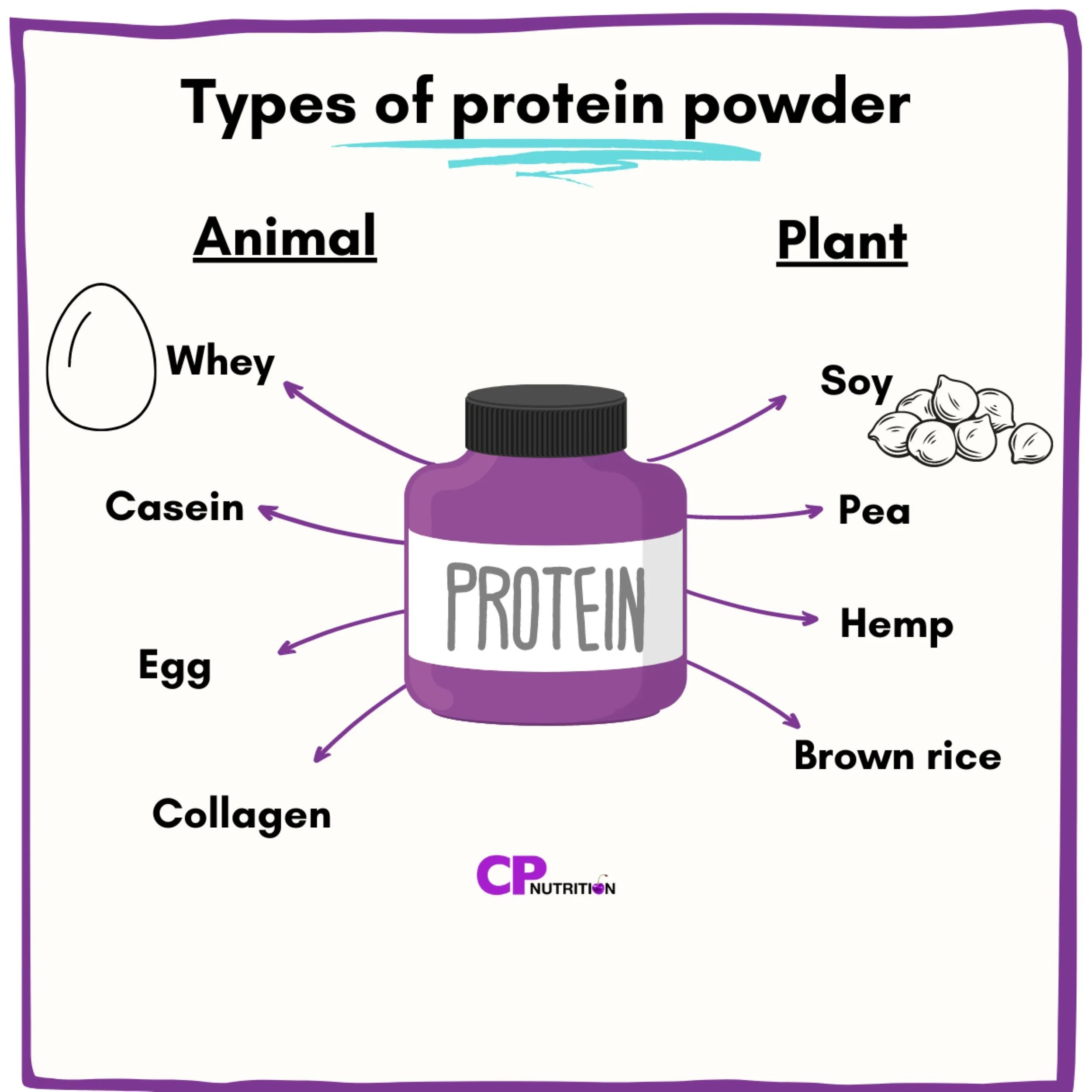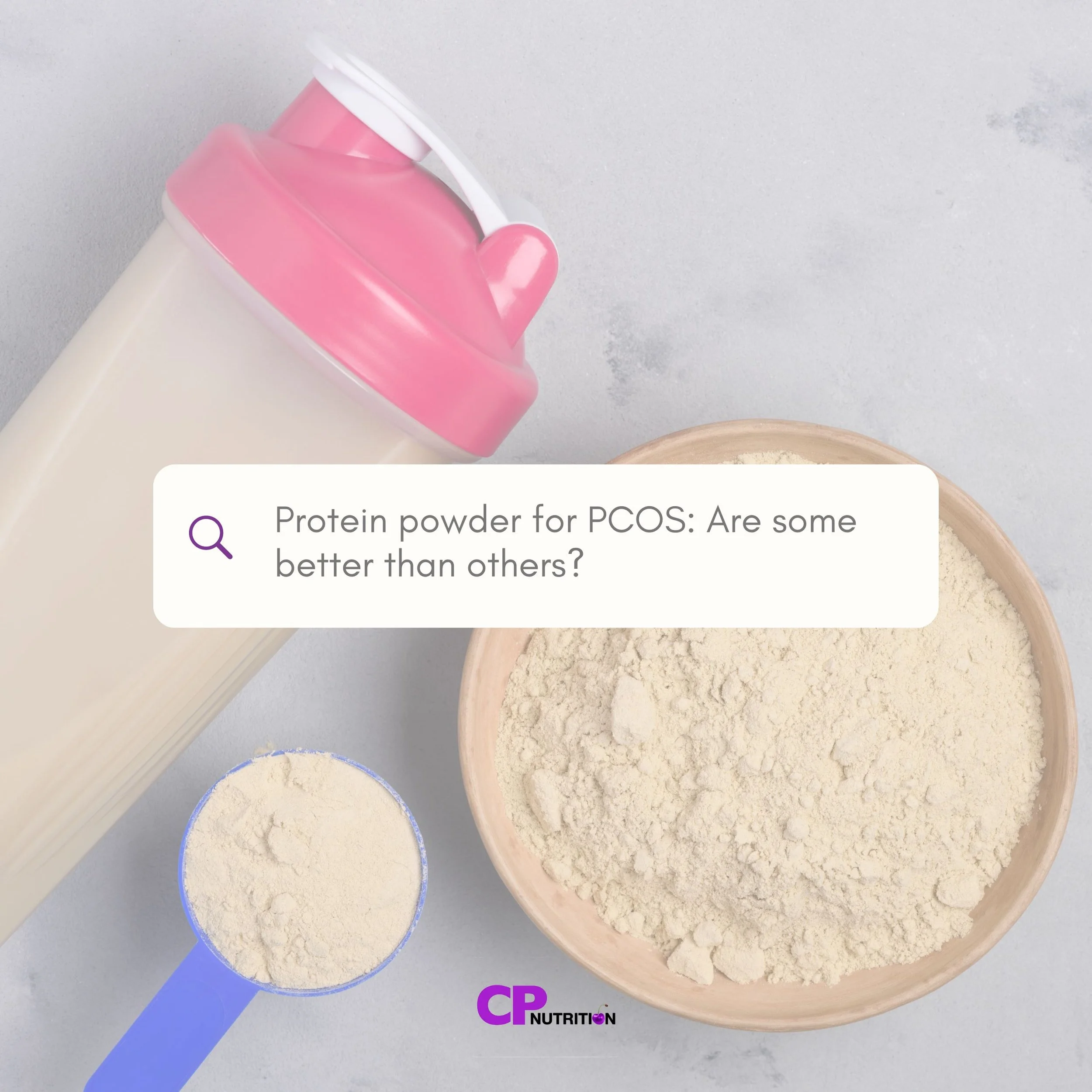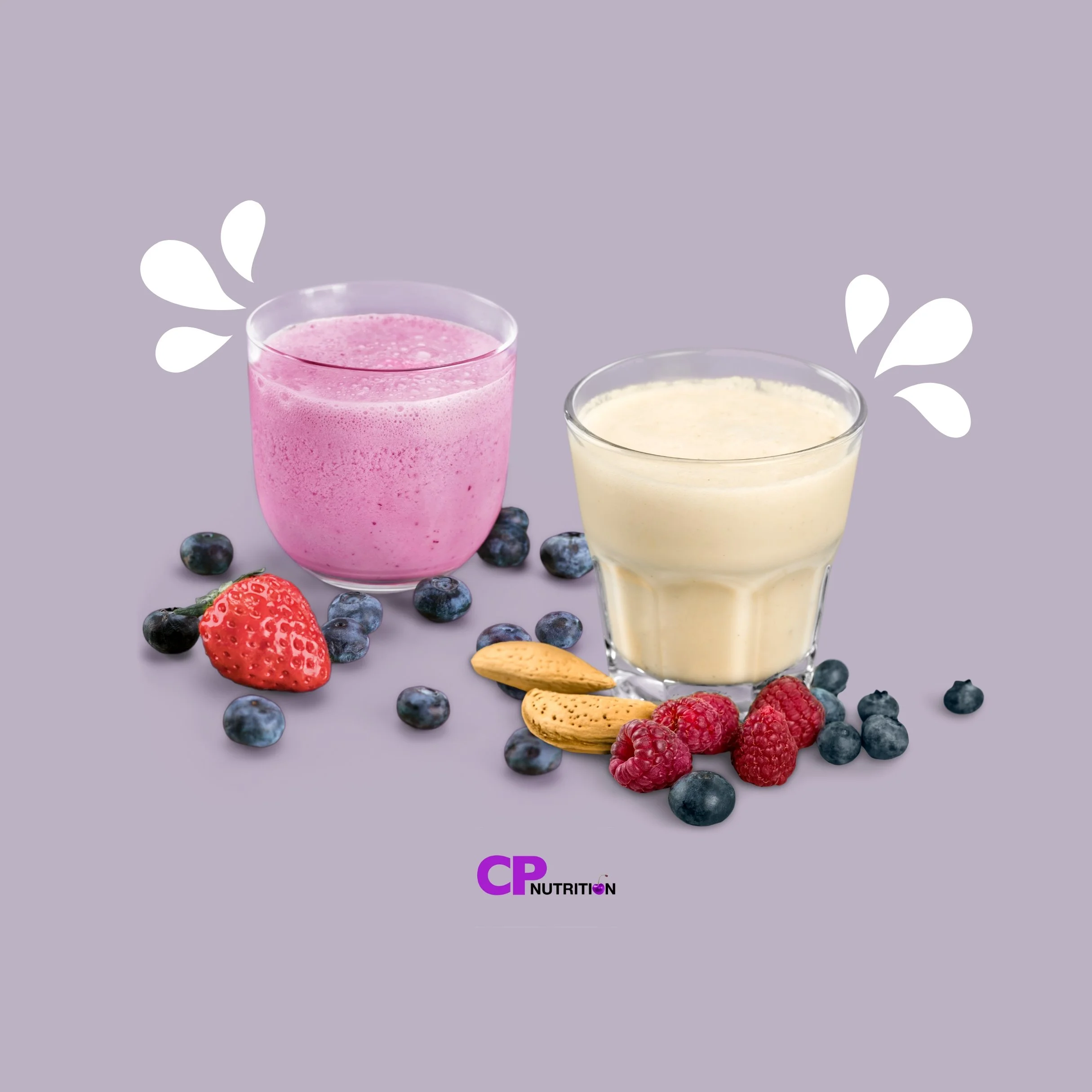Protein powder for PCOS: Are some better than others?
Protein is the most filling or satiating macronutrient, and including enough protein in your diet can help to manage PCOS symptoms such as hunger and cravings, as well as help stabilise blood sugars and manage insulin resistance.
For some, it is not always easy to get enough protein through food alone, and using protein powders can be an easy way to supplement the amount of protein in your diet. The protein powder industry has grown massively, and with so many options out there, you may be wondering, what is the best protein powder for PCOS?
In this article we will explore some of the most common protein powders and explain some of the benefits and drawbacks of each one. Let’s dive in.
Types of protein powder for PCOS
Protein powders come in two main forms; Animal (whey, casein, egg or collagen) and plant (Soy, pea, hemp or brown rice).
Animal protein powders
Animal protein is more easily absorbed by the body and, animal protein powders, gram for gram, often contain less calories and carbohydrates than plant protein powders (1). In addition, animal based proteins are complete proteins, meaning they contain all the amino acids needed by the body.
Although you may have read or seen some hype about animal proteins, especially dairy being linked to inflammation, the evidence actually suggests that dairy products do not have a proinflammatory effect in healthy individuals (there are no similar studies in people with PCOS), and in fact many of the studies done show dairy products may have an anti-inflammatory effect (2, 3). Saying that, If you choose to follow a plant based or vegan diet, or are lactose intolerant, a plant protein powder may be a better alternative for you to try.
Plant protein powders
Soy and pea are equivalent to animal protein in their amino acid profile, however other plant proteins are often criticised for being incomplete, in that they do not contain all essential amino acids (1). Increasing protein intake from plant protein powders is however still worth considering if you want to increase your protein intake from a plant source. In fact, there is some evidence to suggest that eating more plant-based protein food sources can decrease risk of anovulatory infertility (absence of release of an egg/ ovulation), common in people with PCOS (4).
How to choose a protein powder for PCOS
The effects of protein powders on PCOS symptoms are not well researched, and although they are not a necessity in managing PCOS symptoms, they can be a convenient way to increase protein. If you struggle to consume enough protein, you may want to try a protein powder and then monitor any changes to your specific symptoms.
A few pointers to look out for when choosing the right protein powder for you, include:
Protein source: If you are vegetarian or follow a lactose free diet, opt for plant based protein powders such as soy, pea or hemp. Otherwise you can choose animal or plant based powders depending on their amino acid profile and your taste preference.
Sweeteners: There is evidence to suggest some artificial sweeteners may disrupt the natural balance of bacteria in the gut microbiome, associated with glucose intolerances (5). So the number of sweeteners present in your protein powder may be something to take into account if you are looking to maximise gut health. However, there is not enough evidence to make any specific claims, and there is also a lack of studies in patients with PCOS, so if you find the only ones that taste good are those including sweeteners, then maybe opt for one with fewer sweeteners.
Protein content: 20-30g protein per scoop is average.
How to use protein powders
Protein powders (flavoured or plain) can make great additions to recipes such as:
Smoothies & shakes: Add a scoop to your favourite fruit smoothie before blending - See our favourite protein shake for PCOS recipe below.
Protein powder pancakes: Check out our protein powder pancake recipe. It’s nutritious, delicious and a great way to pack in some protein at the start of the day.
Protein powder porridge: Stir your favourite protein powder into your porridge before heating it up.
Baking with protein powder: Protein powder can be added to many desserts such as banana breads, muffins and chia puddings.
Protein shake for PCOS
½ cup of oats
½ cup protein powder (of your choice)
1 frozen banana
½ cup frozen berries
1 cup of yoghurt
Handful of spinach
Milk (of your choice)
Add all the ingredients to your blender before blending for 30-60 seconds. Best enjoyed as a breakfast or mid-morning snack.
Benefits and drawbacks of using a protein powder for PCOS
While protein powders come with many benefits that we have explored in this post and are listed below, they are not without their drawbacks.
Drawbacks include:
Expensive
Unregulated
May contain additives and sweeteners.
Benefits include:
Satiating
Quick
Versatile
It is important to consider trying a food first approach before considering a protein supplement. This could involve adding more protein rich foods in your diet, be that plant based (beans, pulses or tofu), or animal based (eggs, meat, and dairy products).
However, if you are struggling to do this and do choose to supplement with a protein powder, then hopefully you now know some of the factors to consider when choosing the best protein powder for your PCOS. Why don’t you give one a try and keep a tracker of your symptoms to see if it helps!
For further information on protein and PCOS check out our other blog post: Why is it important to include dietary protein with PCOS



